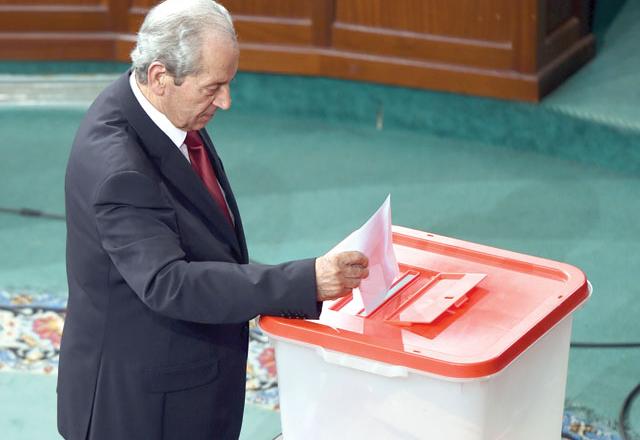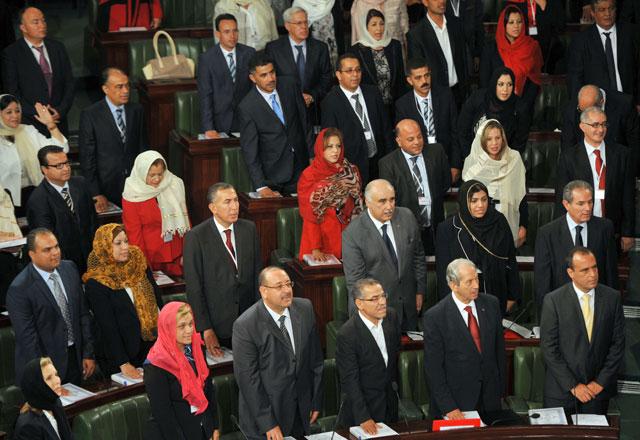You are here
Tunisia to hold presidential run-off on December 21
By AFP - Dec 08,2014 - Last updated at Dec 08,2014
TUNIS — Moncef Marzouki and Beji Caid Essebsi are to face off on December 21 in Tunisia's second round of presidential voting to decide who leads the nation that sparked the Arab Spring.
"Voting will take place on December 21," the head of the ISIE electoral organising body, Chafik Sarsar, told a news conference on Monday.
Campaigning will begin on Tuesday and last until midnight on December 19, Sarsar said, urging the two candidates and the media to respect electoral campaign rules given "the importance of this historic moment".
Neither incumbent Marzouki nor 88-year-old political veteran Essebsi won an overall majority in the first round of polling on November 23.
The final results from the first round, released on Monday, showed Essebsi ahead with 39.46 per cent of votes cast and Marzouki on 33.43 per cent.
The election in the North African nation is the first time its people have been able to vote freely for their head of state since independence from France in 1956.
Twenty-seven candidates stood in the first round of the milestone election in Tunisia, where the ouster in 2011 of longtime strongman Zine El Abidine Ben Ali set off a chain of revolts that saw several Arab dictators toppled by citizens demanding democratic reform.
The country's leaders pride themselves on the fact that Tunisia has been largely spared the bloodshed that has hit other Arab Spring states such as Egypt, Libya and Yemen.
But it faces significant challenges, including a jihadist threat, a weak economy and social unrest.
Anti-Islamist party Nidaa Tounes, which is headed by Essebsi, won 86 seats in parliamentary polls in October, beating moderate Islamist movement Ennahda, dominant since Ben Ali's ouster, into second place with 69 seats.
The presidential runoff is set to be polarising, with Marzouki's camp portraying him as the last line of defence against a return to the autocratic ways of the old regime, and Essebsi deriding him as an Islamist pawn.
Marzouki, 69, was an exiled dissident during Ben Ali's rule and was elected president at the end of 2011 by an interim assembly under a coalition deal with the then-ruling Ennahda.
Essebsi held key positions under Habib Bourguiba, the father of Tunisia's independence, and under Ben Ali.
To prevent another dictatorship, presidential powers have been restricted under a new constitution, with executive prerogatives transferred to a premier.
The electoral system calls for the party with the most votes to form a coalition government. Nidaa Tounes has said the process will start after the presidential run-off.
Related Articles
Tunisians vote on Sunday in a presidential election pitting an ex-official from the days of autocrat Zine El Abidine Ben Ali against a rights activist appealing to the spirit of the 2011 revolt that ousted him.
Tunisia’s first parliament since the 2011 revolution on Thursday elected veteran politician Mohamed Ennaceur, 80, of anti-Islamist party Nidaa Tounes as house speaker.
Tunisia's new parliament held its inaugural session on Tuesday, a landmark in the country's often fraught transition to democracy since the 2011 revolution which sparked the Arab Spring.


















